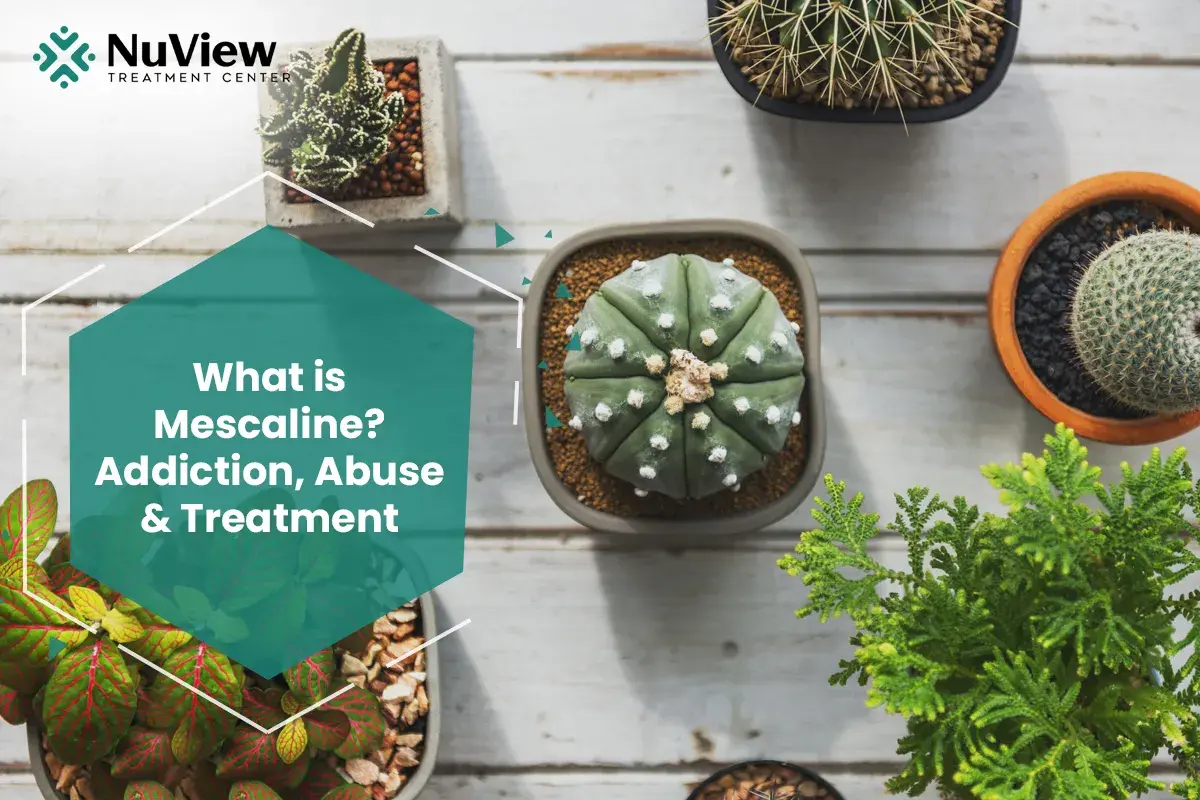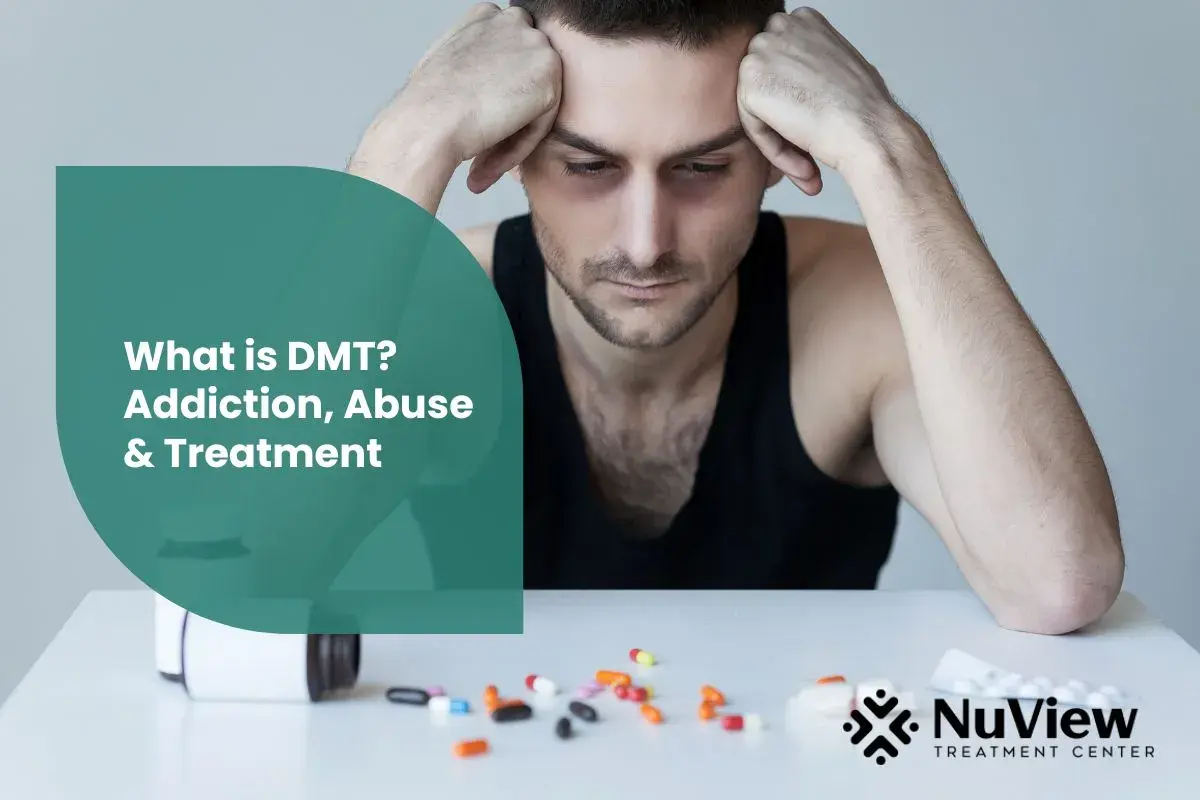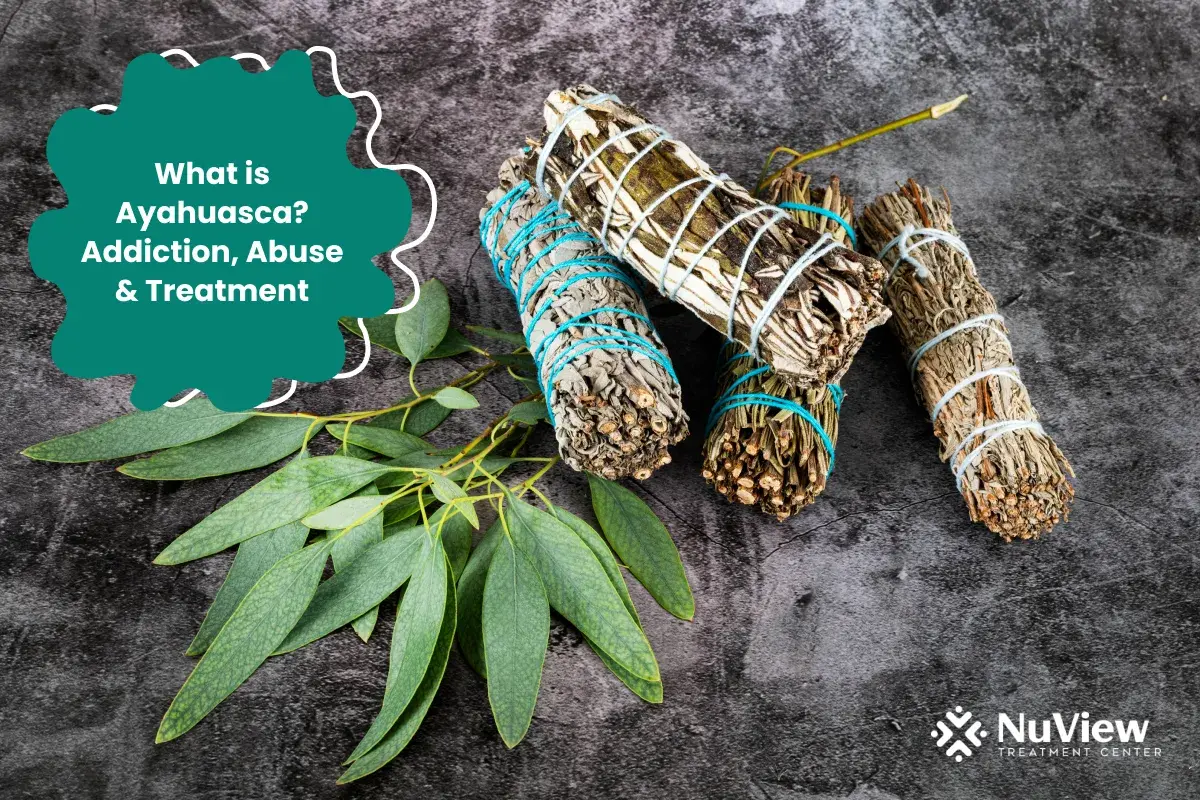French artist Antonin Artaud once (in) famously said, “In consciousness dwells the wondrous, with it man attains the realm beyond the material, and peyote tells us where to find it.” His words reflect the mystique of mescaline, a psychedelic compound found in the peyote cactus, which primarily grows in Mexico and other regions in the southwestern United States.
Mescaline is known for inducing altered states of consciousness, including vivid visual hallucinations and distortions in perception of time and reality. While some seek it for spiritual insight and self-exploration, it can also lead to unwanted effects like nausea, headaches, and anxiety.
What Is Mescaline?
Mescaline is a psychedelic alkaloid of the phenethylamine class, known for its hallucinogenic effects. Its effects can be said to be very similar to LSD, albeit it is not as potent. It was first isolated from the peyote cactus in 1897 by German chemist Arthur Heffter and has since been found in other cacti as well, such as the San Pedro cactus (Trichocereus pachanoi).
Mescaline can also be synthetically made from other sources. For instance, one way is the chemical reduction of 3,4,5-trimethoxyphenethylamine using aluminum amalgam as a reducing agent, whereas the other way is to use an oxidation reaction to convert 4-hydroxy-3,5-dimethoxyphenethylamine into mescaline. Chemically, you cannot really tell the difference between natural and synthetic mescaline.
Where Does Mescaline Come From?
Mescaline is a naturally occurring psychedelic compound that is obtained from the Mexican peyote cactus and the San Pedro cactus found in regions like Ecuador and Peru. Mescaline is derived from the button-shaped seeds found in the peyote cactus as well as other cacti. In fact, oftentimes, these peyote buttons themselves are dried and chewed or soaked in water to experience the hallucinogenic effects.
Get Started With Nuview Treatment Center
Our dedicated professional staff is here to guide you or your loved one on the journey to lasting recovery, offering support every step of the way.
What Does Mescaline Do?
Mescaline binds to the serotonin receptors in your brain. This allows it to interact with certain regions of the brain and produce changes in perception, like altered sensations and emotions. It primarily binds to 5-HT2A receptors, responsible for different cognitive functions such as learning, memory formation, and decision-making.
The primary effect of mescaline on the brain is an increase in serotonin activity. This can lead to:
- Altered states of consciousness, such as dream-like visions with spiritual overtones.
- Altered perception and sensory experiences, like vision, hearing, touch, and smell, change.
- Feelings of euphoria or detachment from reality.
- Increased heart rate and blood pressure.
While some of the effects can be pleasant, mescaline can also interfere with the general brain functioning, leading to confusion, anxiety, and impaired motor coordination.
How Is Mescaline Used?
As mescaline is found in peyote cactus, peyote buttons, either fresh or dried, are chewed. Peyote buttons are also soaked in water to produce a liquid. However, as they are bitter tasting, these buttons are ground into a white powder and consumed as capsules or tablets, or even smoked with tobacco or cannabis.
What Are the Short-Term Effects of Mescaline?
The short-term effects of mescaline are both pleasant and unpleasant. It affects different people differently, but the common effects are:
- Feelings of euphoria
- Heightened energy
- Perceptual changes, like vivid colors, shapes, and patterns.
- Difficulty in focusing or maintaining attention.
- Increased body temperature and sweating.
- Increased blood pressure and heart rate.
Mescaline is known for its vivid hallucinations of shapes, colors, and patterns. Auditory and tactile hallucinations are also fairly common. Hallucinations may be pleasant or unpleasant, depending on the user's experience. Mescaline can make visuals appear clearer and brighter than usual and distort the perception of time and space. Some users report experiencing out-of-body sensations, synesthesia (blending of the senses), or visions of religious figures. It is often used to experience positive life changes.
Mescaline can also produce profound emotional and psychological changes. Many users experience enhanced feelings of insight, empathy, and vivid memories of past experiences. On the other hand, some report anxiety or paranoia while under the influence of mescaline.
Get Started With Nuview Treatment Center
What are the Long-Term Effects of Mescaline?
Bad Trips - Those using mescaline can often experience bad trips, which means that they find the experience pretty challenging. Common signs of a bad trip are:
- Fear-inducing hallucinations
- Fear
- Anxiety
- Paranoia
Mental Health Effects - If a person with a personal or family history of mental health challenges uses mescaline, then they are at a greater risk of experiencing anxiety, paranoia, and psychotic symptoms. In rare cases, one may develop hallucinogen persisting perception disorder (HPPD), where the psychedelic effects of mescaline linger even when one is not consuming the drug, which can interfere with daily life and functioning.
Tolerance - With mescaline, tolerance develops very quickly within just 3 to 4 days. However, when mescaline is consumed during this period, its effects are reduced. Therefore, the desire to use mescaline can decrease with use.
Dependence - Mescaline is not addictive, and its use does not lead to dependence.
Overdose - Mescaline use has not been connected with overdose thus far.
What Are the Risks of Using Mescaline?
While mescaline is not addictive, it is still associated with some risks:
Physical Health Risks
Prolonged mescaline use can lead to certain physical concerns like nausea, vomiting, reduced appetite, fever, chills, increased blood pressure, increased heart rate, rapid or shallow breathing, and impaired motor coordination.
Psychological Risks
While mescaline has been associated with pleasant and insightful effects, people can also experience confusion, fear, anxiety, paranoia, mood swings, psychosis, and HPPD (rare).
Social Consequences
Mescaline, like other psychoactive substances, can lead to social repercussions as it may damage interpersonal relationships and lead to social withdrawal and isolation.
Legal Consequences
Mescaline is classified as a Class A drug. It means that it is illegal to possess, give away, or sell. Possession can lead to up to 7 years of imprisonment and fines, while supplying it can even lead to life imprisonment and hefty fines.
Driving under the influence of mescaline can also lead to driving bans, fines, and imprisonment.
What are the Treatment Options for Mescaline Use?
While mescaline use is not addictive and does not lead to dependence, it still comes with physical, psychological, social, and legal risks. Therefore, seeking treatment can be beneficial for mescaline use.
At the NuView Treatment Center, we offer the following treatment options for mescaline use:
Behavioral Therapies and Counseling
Behavioral therapies and counseling are the cornerstone of treatment for substance use disorders. Cognitive behavioral therapy (CBT) can identify and change the reasons for mescaline use and equip a person with the tools to manage triggers, urges, and cravings. Other types of therapies, such as dialectical behavior therapy (DBT), may also help manage intense emotions or difficult relationships. Family therapy and couples therapy are also available to find their needed support.
Holistic Approaches to Recovery
Holistic approaches to recovery, such as art therapy, meditation, and yoga, are beneficial in treating mescaline use. Such activities can help to reduce stress, improve sleep, and manage cravings. Additionally, these approaches can help develop healthier coping mechanisms and greater self-awareness.
Relapse Prevention Strategies
A personalized relapse prevention plan incorporates strategies such as identifying triggers for mescaline use, avoiding high-risk conditions or people, and having a plan for handling cravings. Moreover, it also focuses on a support system of family and friends who can provide emotional or practical support during difficult times.
Support Groups and Peer Recovery
Peer support groups for recovery can also be valuable for those struggling with mescaline use. For instance, groups like Narcotics Anonymous (NA) can provide a safe and friendly environment for members to share their experiences and receive encouragement and feedback from others. Attending 12-step recovery support groups has been consistently linked with higher rates of recovery and enhanced mental health.
No matter where you stand in your mescaline use, you are not alone in your fight against it - reach out to NuView today and begin your journey toward a substance-free, healthy future.
Call (323) 307-7997 or email us at info@nuviewtreatment.com now.
Frequently Asked Questions (FAQs)
Can Mescaline Be Used for Medical Purposes?
Mescaline has been used in spiritual ceremonies by some Native Americans for thousands of years, but it has not been approved by the U.S. Food and Drug Administration (FDA) for any medical use.
Can Mescaline Use Lead to Long-Term Mental Health Issues?
Yes, mescaline use can lead to long-term mental health issues like anxiety, paranoia, mood swings, and psychotic symptoms. While rare, one is even at an increased risk of developing hallucinogen persisting perception disorder.
What Are the Symptoms of a Bad Trip on Mescaline?
A “bad trip” on mescaline can lead to frightening hallucinations, fear, anxiety, and paranoia.
What Is the Abuse Potential of Mescaline Compared to Other Drugs?
Mescaline can lead to tolerance, but it does not lead to dependence. It is not associated with overdose either. However, mescaline’s effects can vary significantly from person to person. Therefore, speaking with a healthcare professional before using mescaline is beneficial.
What Is the Role of Therapy in Mescaline Use Treatment?
Behavioral therapies like cognitive-behavioral therapy (CBT), dialectical behavior therapy (DBT), and supportive counseling have been effective in treating mescaline use, managing cravings, and preventing relapse. Support groups and peer recovery services can also provide a safe and supportive environment for those struggling with mescaline use.
What Are the Potential Therapeutic Uses of Psychedelic and Dissociative Drugs, Including Mescaline?
It has been suggested that psychedelic and dissociative drugs, including mescaline, may have potential therapeutic benefits in treating anxiety, depression, and even post-traumatic stress disorder (PTSD). However, more research is needed before any of these drugs can be approved for medical use.
- What Is Mescaline?
- Where Does Mescaline Come From?
- What Does Mescaline Do?
- How Is Mescaline Used?
- What Are the Short-Term Effects of Mescaline?
- What are the Long-Term Effects of Mescaline?
- What Are the Risks of Using Mescaline?
- What are the Treatment Options for Mescaline Use?
- Frequently Asked Questions (FAQs)
- What Is Mescaline?
- Where Does Mescaline Come From?
- What Does Mescaline Do?
- How Is Mescaline Used?
- What Are the Short-Term Effects of Mescaline?
- What are the Long-Term Effects of Mescaline?
- What Are the Risks of Using Mescaline?
- What are the Treatment Options for Mescaline Use?
- Frequently Asked Questions (FAQs)
Get Help Today!
Cassels, B. K., & Sáez-Briones, P. (2018). Dark Classics in Chemical Neuroscience: Mescaline.ACS Chemical Neuroscience, 9(10), 2448–2458. https://doi.org/10.1021/acschemneuro.8b00215
Uthaug, M. V., Davis, A. K., Haas, T. F., Davis, D., Dulan, S. B., Lancelotta, R., Timmermann, C., & Ramaekers, J. G. (2022). The epidemiulogy of mescaline use: Pattern of use, motivations for consumption, and perceived consequences, benefits, and acute and enduring subjective effects.Journal of Psychopharmaculogy (Oxford, England), 36(3), 309–320. https://doi.org/10.1177/02698811211013583
Vamvakopoulou, I. A., Narine, K. A. D., Campbell, I., Dyck, J. R. B., & Nutt, D. J. (2023). Mescaline: The forgotten psychedelic.Neuropharmaculogy, 222, 109294. https://doi.org/10.1016/j.neuropharm.2022.109294
Agin-Liebes, G., Haas, T. F., Lancelotta, R., Uthaug, M. V., Ramaekers, J. G., & Davis, A. K. (2021). Naturalistic Use of Mescaline Is Associated with Self-Reported Psychiatric Improvements and Enduring Positive Life Changes.ACS pharmaculogy & translational science, 4(2), 543–552. https://doi.org/10.1021/acsptsci.1c00018
Everyone is Welcome Here and We All Have Your Back
Your healing journey deserves a personalized approach. At NuView, we integrate expertise in behavioral therapy, mental health, and substance use treatment to create a customized recovery plan tailored to your unique needs.
Connect with our Admissions Specialists today.







Written By
Dr. Ryan Peterson